Herbs for Babies and Kids – Usage and What’s Safe
Herbs are often used to treat ailments. They are natural and thus safe for all. Many plants have been used for medicinal purposes for a long time now. Herbs are crushed to extract their medicinal properties and are used for healing purposes.
Herbs are a safer alternative to medicines found in pharmacies, which is why most parents opt for them when their children are sick. Herbs for babies and kids can be especially beneficial, as they are gentle on young bodies. While conventional medication has its benefits, it should only be used for severe cases. Let’s read on to learn more about herbs for newborns and kids and their efficacy,
What Are Herbs?
Herbs are plants or parts of plants that are used for aromatic, savoury, or medicinal purposes. They are used for seasoning food, making cosmetics and fragrances, and, most importantly, treating ailments in the form of herbal medicines. A herb can help heal a child. It can cure flu, treat problems such as teething and colic, and more serious childhood problems like chicken pox and measles.
When and Why to Use Herbs for Your Child?
Herbs can be used when a child becomes sick after exposure to germs, or even on a daily basis to boost immunity. The bodies of children are quite sensitive, and so they respond fast and well to herbs. If it is administered properly, herbs will work in harmony with your child’s system, unlike many of the modern medicines available to us today, making them a better option for the little ones.
Which Part of the Herb Should You Use?
Many parts of an herb can be used for medicinal purposes. Flowers, grasses, seeds, berries, nuts, leaves, stems, roots, and stalks can all be used. However, the use of these will depend on the purpose they are being used for.
Things to Consider While Choosing Herbs for Kids
Choosing the right herbs for kids requires careful consideration to ensure safety and effectiveness. Since children have more sensitive systems, it’s essential to be well-informed about the herbs used.
- Consult with a Pediatrician: Always seek advice from a paediatrician or a qualified healthcare provider before introducing herbs to your child’s regimen. This ensures the herbs are appropriate and safe for their age and health.
- Quality and Source: Opt for high-quality, organic herbs from reputable sources to avoid contaminants and ensure the best therapeutic effects. Avoid herbs with added chemicals or preservatives.
- Dosage and Administration: Follow the recommended dosages for children, as they differ significantly from adult dosages. Proper administration is crucial to prevent potential side effects or overdose.
How to Use Herbs for Babies and Kids?
Herbs can be given to the little ones by including these in their food. You can also give a herbal bath to your baby. Many herbal formulas are administered through bath even by professionals so that the skin can absorb the wonderful and healing properties of the herb. Syrups and tinctures are other options that are available to make it easier to administer the medicinal herbs.
How to Make a Herbal Bath for Your Child?
Here is how to make a proper herbal bath for your child:
What You Will Need
- Quarter cup dried herbs or half cup fresh herbs
- Half a gallon of hot water
- Large dish with cover
Instructions
- Soak the herbs in the dish with the hot water and leave it covered for about 45 minutes.
- Strain and pour it into the bath water.
- Have your child soak in the water for at least 10 minutes.
Safe Herbs for Infants and Children
Here are the best and safest herbs to use for children:
1. Calendula
This easy-to-grow flowering herb is great to use for skin problems like eczema, red and inflamed skin, dry and itchy skin, as well as wounds, bug bites etc. Calendula has anti-fungal properties and can soothe and heal almost any skin related ailment. If your baby has diaper rash, thrush or cradle cap, using calendula can help.
How to Use
Make a bath out of the flowers and have your child soak in it for about 10 minutes. You can even find home recipes for making calendula creams and lotions, and the blossom can be used in cooking.
2. Echinacea
Amongst the different herbs for kids, Echinacea is known to boost the immune system and can help in relieving cold, flu, and even ear infections. If you notice your child beginning to show signs of illness, echinacea will help decrease the duration and severity of the illness. If you give this to your child during the flu season, it will help prevent your child from getting ill altogether.
How to Use
The best way to give this to your child is by adding the recommended dosage of the drops in their food or juice. You can also make a bath from the dried or fresh herbs if they are available.
3. Chamomile
This healing wonder is something that you must have if you have a child. It’s an excellent herb for colic in babies. Out of all the herbs for kids, chamomile calms and relaxes the nervous system while also proving useful for many other problems. It helps the digestive system, soothes the tummy, relieves anxiety, helps with problems such as diarrhoea, colic, acid reflux, indigestion, infections, boosts the immune system, helps heal wounds, and relieves irritated skin.
How to Use
A chamomile bath can be very useful to calm the little ones before bed, and light chamomile tea can also do wonders for your child.
4. Astragalus
Like many safe herbs for kids, astragalus is known to boost the function of the immune system, thereby strengthening a child’s resistance to catching diseases. It is known to prevent children from contracting any illness or disease and also strengthening the immune system of a child after a disease.
How to Use
Add a slice of the root to a cup of water to make tea, or add it to stews, soups, or even to your pot of rice. The root itself should not be consumed, but it will release its beneficial properties in the boiling process.
5. Elderberries and Elderflowers
This is another wonderful herb to give to your child as it can protect and cure illnesses. It is known for its healing properties and is used to treat cold, cough, bacterial and viral infections, and flu. Elderberries can help heal your child from the flu and can shorten the duration of their cold. Elderflowers can help with nasal congestion too.
How to Use
Elderberry syrup can be given to your child occasionally to support his delicate immune system. Elderflowers can be used to make a bath for your child so that he can absorb the benefits of it.
6. Ginger
Ginger is a versatile herb that can help soothe an upset stomach, relieve nausea, and improve digestion in children. It also has anti-inflammatory properties that can aid in reducing pain and swelling.
How to Use
Ginger tea, made by boiling a small piece of fresh ginger in water, can be given to children in small amounts. Ginger can also be added to soups or broths.
7. Lavender
Lavender is well-known for its calming and relaxing properties. It can help reduce anxiety, promote better sleep, and soothe irritated skin.
How to Use
Lavender essential oil can be diluted and added to a diffuser to help your child relax before bedtime. Lavender-infused baths can also help soothe the skin and promote relaxation.
8. Fennel
Fennel is beneficial for relieving digestive issues such as colic, gas, and bloating in children. It can also help stimulate appetite and reduce symptoms of respiratory conditions like cough and bronchitis.
How to Use
Fennel tea can be made by steeping crushed fennel seeds in hot water. The tea can be given to children in small amounts to help with digestion or respiratory issues.
Food Recipes with Herbs for Your Baby
A good way to give your babies herbs is to add them to their food. Here are a few recipes that you can use to do just that:
1. Veggie Rice Pot
This dish is delicious, and your baby will never know you added Astragalus into it to boost his immunity.
Ingredients
- 1 chopped medium carrot
- 1 chopped medium parsnip
- 1 slice of Astragalus root
- 1 teaspoon mixed herbs
- 1/2 cup brown rice
Method
- Sauté carrots and parsnips in olive oil until soft.
- Add mixed herbs, astragalus root, and rice and cook until fragrant.
- Add one and half a cup of water to it.
- Once it starts boiling, simmer for 40 minutes until rice is soft.
- Remove astragalus root.
2. Tomato and Calendula Rasam
Great for monsoon and winter to ward off illness, calendula blossoms give a peppery and tangy taste to the dish. However, use organic blossoms while cooking.
Ingredients
- 2 tomatoes
- 1 calendula blossom
- ½ tsp jeera
- 2 garlic cloves
- Mint
- A pinch of turmeric and salt
Method
- Blanche and peel the tomatoes.
- Dry roast cumin seeds and garlic until fragrant.
- Grind into a paste with tomatoes.
- Boil the calendula blossoms in one cup of water.
- Heat some oil and add tomato puree, haldi, and salt, and cook over low flame.
- Remove the calendula blossom and add the water to the mixture and boil until frothy.
- Garnish with mint leaves.
3. Elderberry Chia Pudding
A sweet pudding for your little one will make for a great treat.
Ingredients
- 1/2 cup chia seeds
- 2 cups of milk
- 1/2 tsp of vanilla extract
- Jaggery to sweeten
- Three teaspoons of elderberry syrup
Method
- In a glass container, whisk all the ingredients together until there are no lumps.
- Leave to breathe for 15 minutes and mix again.
- Place the lid and refrigerate overnight.
FAQs
1. Are herbal teas safe for infants?
Herbal teas can be beneficial but should be used sparingly with infants. Mild teas such as chamomile or fennel can help with digestive issues and relaxation. However, the tea should be weak, and only small amounts should be given. Avoid teas with caffeine or strong herbs, and always consult with a healthcare provider before introducing herbal teas to your baby.
2. How can I ensure the quality of herbs for my child?
Always choose organic and reputable brands to ensure the quality of herbs for your child. Look for certifications such as USDA Organic or Non-GMO Project Verified. Avoid herbs with additives, fillers, or artificial ingredients. If possible, grow your own herbs to control their quality and safety completely.
3. Can herbs interact with medications my child is taking?
Yes, herbs can interact with medications, potentially altering their effectiveness or causing side effects. For example, St. John’s Wort can interact with antidepressants, and echinacea can affect immunosuppressive drugs. Always inform your child’s healthcare provider about any herbs or supplements your child is taking to avoid adverse interactions.
These were some of the many calming herbs for kids. Before using any herbal remedy, ensure that your child is not allergic to it. Do a patch test first. Apply a bit of the herb to a skin patch and see if it causes any negative reaction in your child. Then, proceed with the remedies. Keep in mind that the use of any medicine, herbal or otherwise, should be done under the supervision of someone who is qualified in the field.
References/Resources:
1. Great Herbs for Kids; The Herb Society of America; https://www.herbsociety.org/hsa-learn/intro-to-herbs/hsa-gardening-for-kids/great-herbs-for-kids.html
2. Snodgrass. W; Herbal products: Risks and benefits of use in children (Current Therapeutic Research); ScienceDirect; https://www.sciencedirect.com/science/article/abs/pii/S0011393X01800795; October 2001
3. Karakus. M, Tapisiz. A, arakas. N, et. al.; Use of Herbal Tea/Herbal Preparations for Children with Symptoms of Viral Upper Respiratory Infections (Turkish Journal Of Pharmaceutical Sciences); National Library of Medicine; https://www.ncbi.nlm.nih.gov/pmc/articles/PMC9986947/; February 2023
4. Polat. S, Gürol. A; Safety of Herbal Medicines in Children; Researchgate; https://www.researchgate.net/publication/355682607_Safety_of_Herbal_Medicines_in_Children; October 2021
5. Du. Y, Wolf. I, Zhuang. W; Use of herbal medicinal products among children and adolescents in Germany (BMC Complementary Medicine and Therapies); National Library of Medicine; https://www.ncbi.nlm.nih.gov/pmc/articles/PMC4091953/; July 2014
6. A Guide to Common Medicinal Herbs; Nationwide Children’s Hospital; https://www.nationwidechildrens.org/family-resources-education/family-resources-library/a-guide-to-common-medicinal-herbs
7. Hadian. F, Varshochi. M, Feyzabadi. Z, et. al.; Medicinal Herbs Useful in Pediatric Fever from the Perspective of
Persian Medicine; International Journal of Pediatrics; https://ijp.mums.ac.ir/article_13525_2fbd3a3774f015f05ee325fe55cb2c11.pdf
Also Read:
DHA for Babies and Kids
Is Protein Powder Safe for Kids?
Essential Oils for Infants and Children
Are Noodles Good for Babies & Kids?
Was This Article Helpful?
Parenting is a huge responsibility, for you as a caregiver, but also for us as a parenting content platform. We understand that and take our responsibility of creating credible content seriously. FirstCry Parenting articles are written and published only after extensive research using factually sound references to deliver quality content that is accurate, validated by experts, and completely reliable. To understand how we go about creating content that is credible, read our editorial policy here.





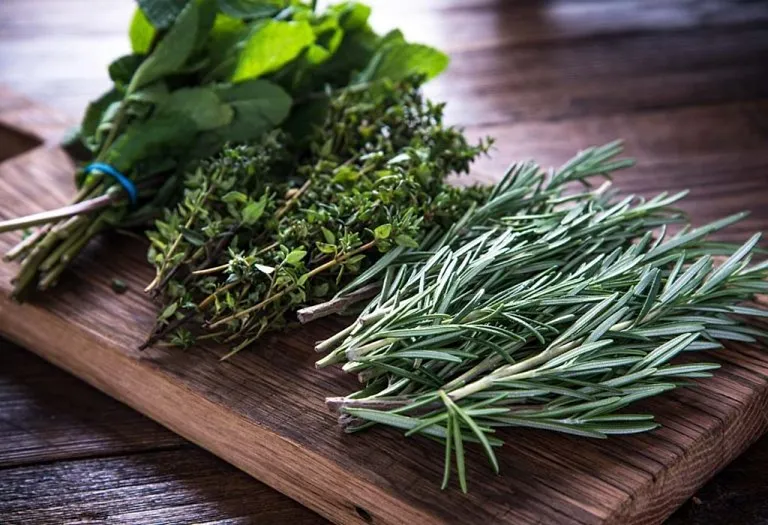
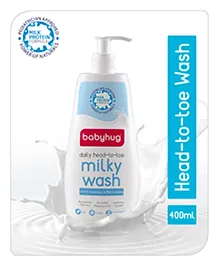
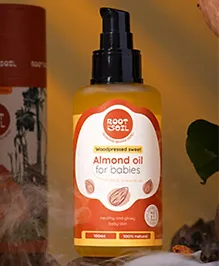
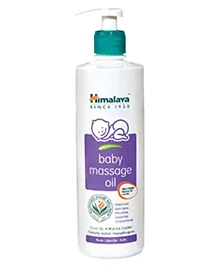
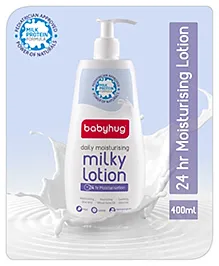
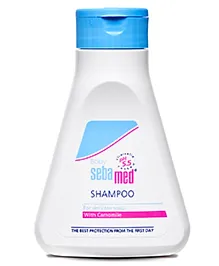

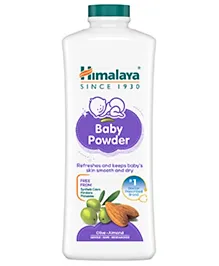
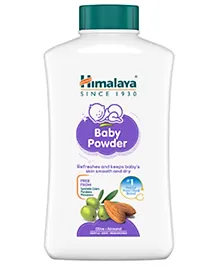
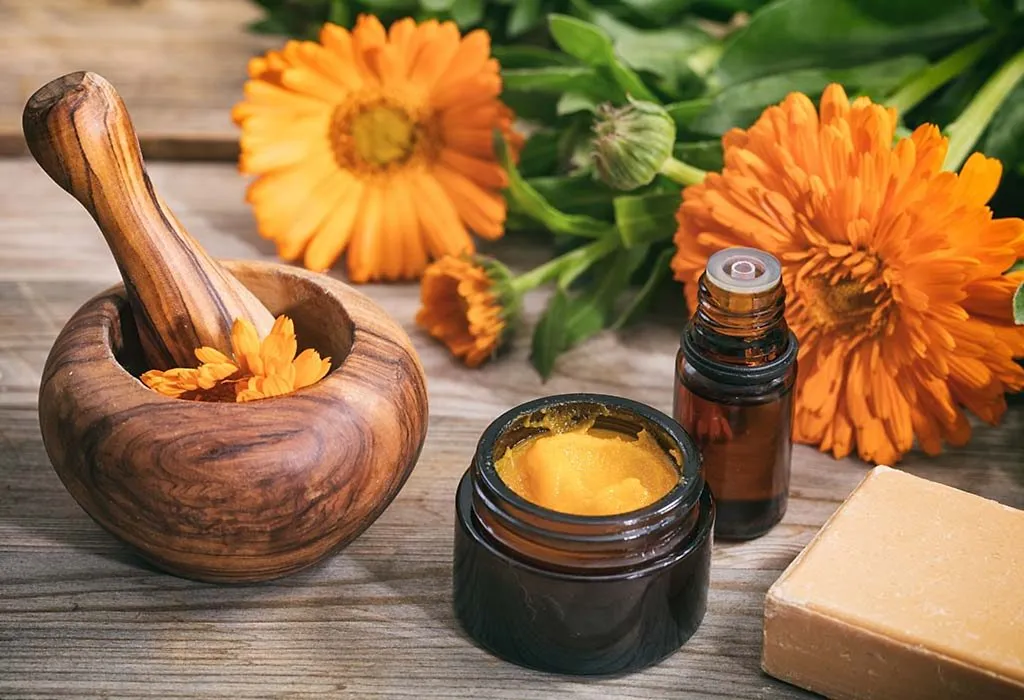
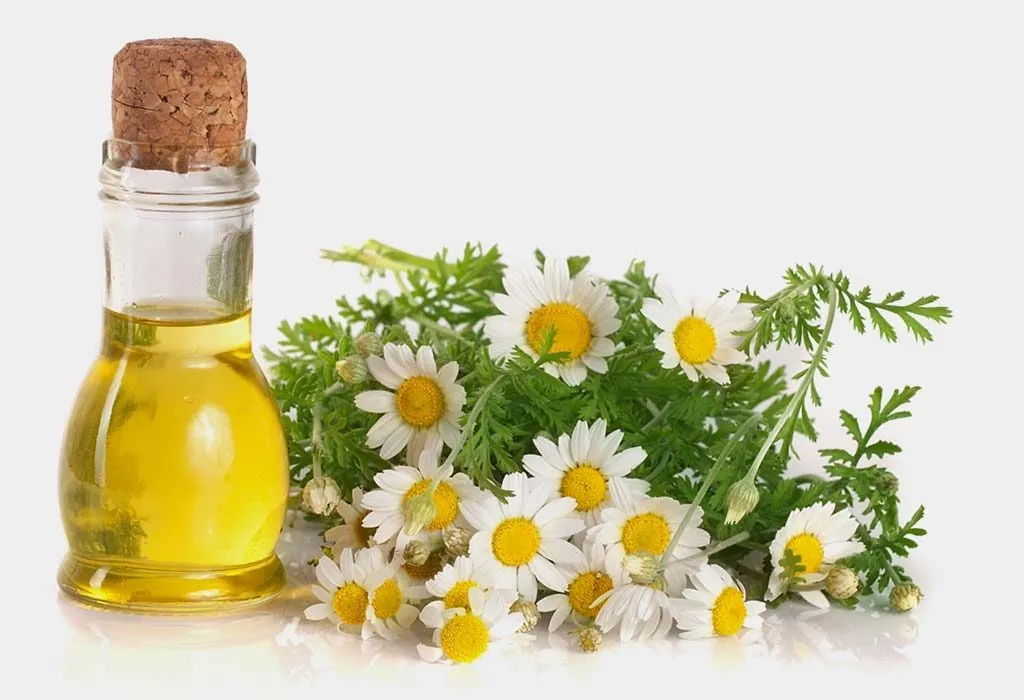
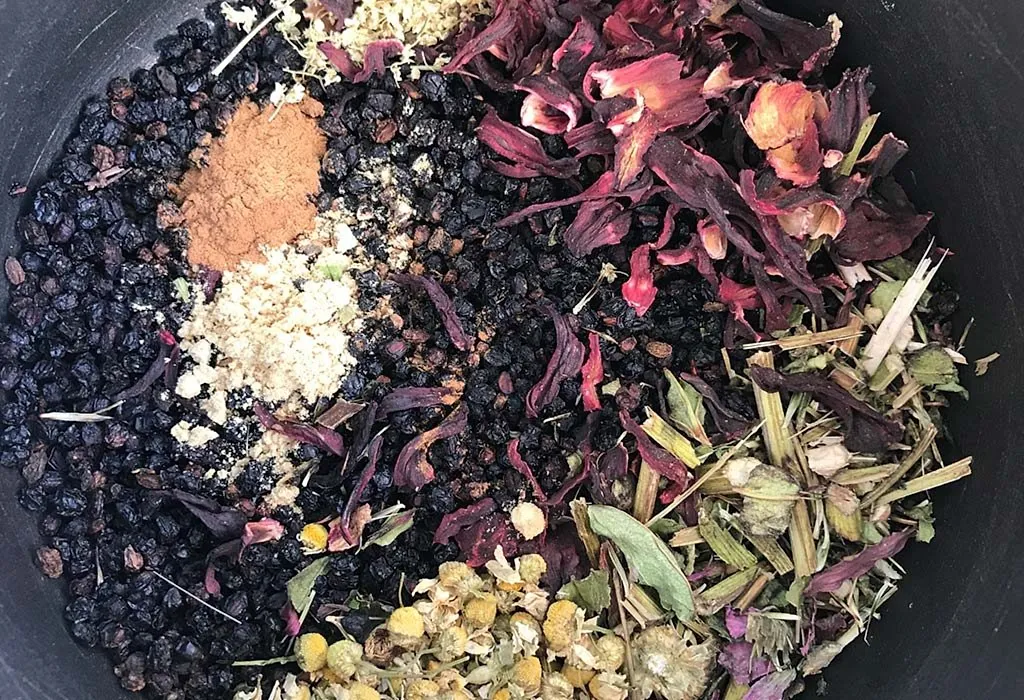
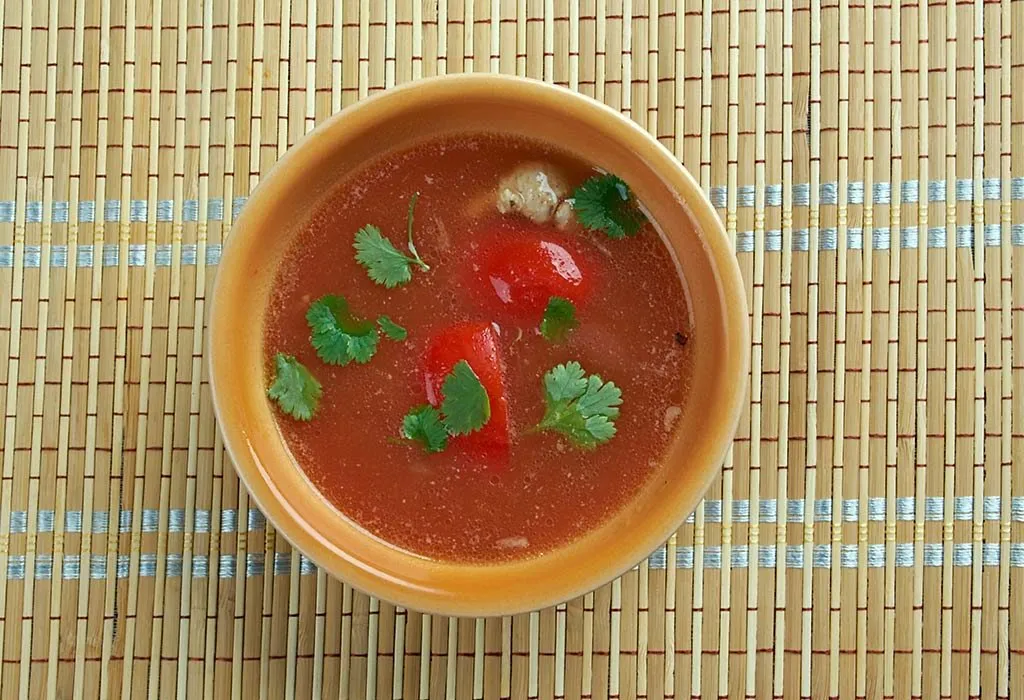
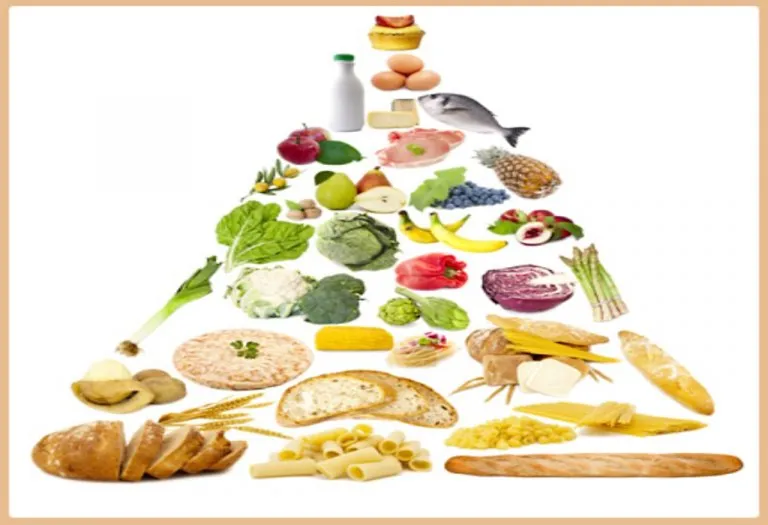

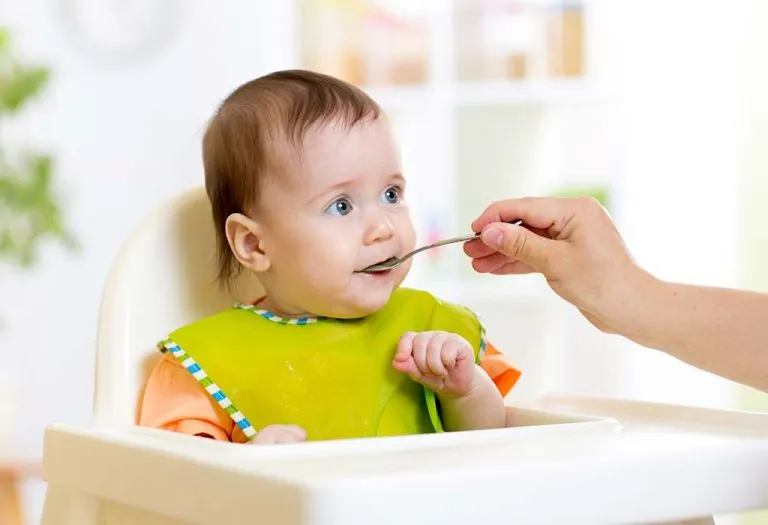
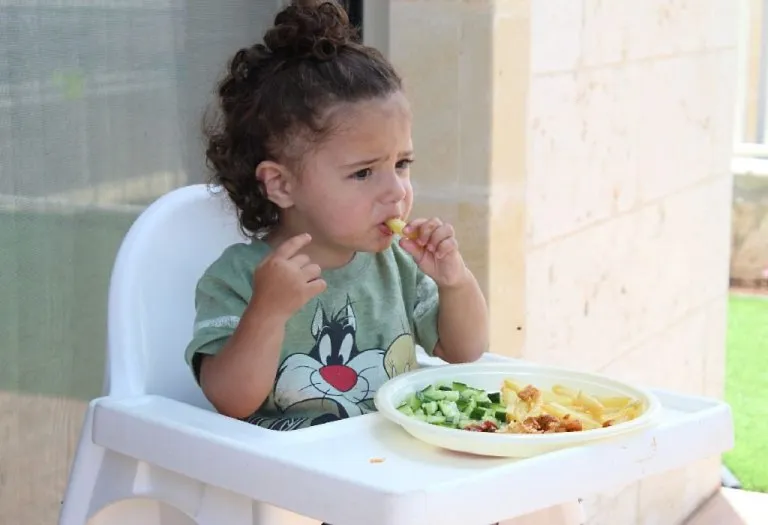
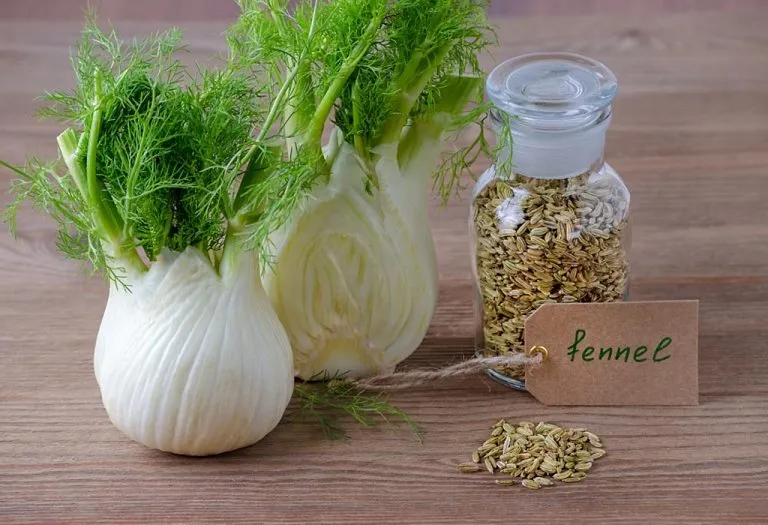
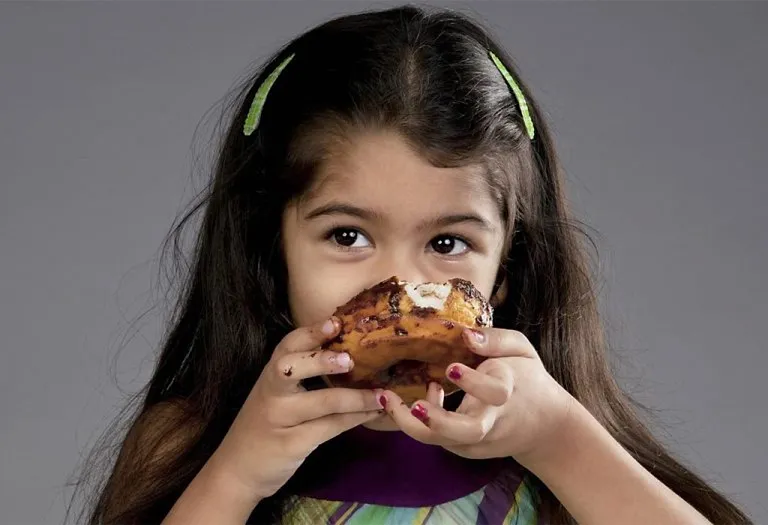

.svg)


















